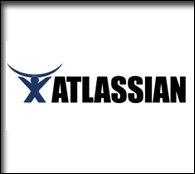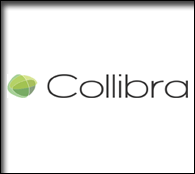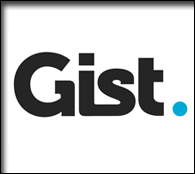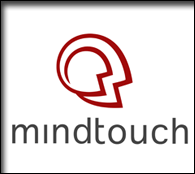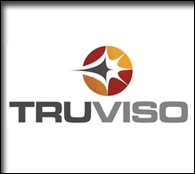Archive for August, 2009
Come Early, Stay Late
by Eric Norlin on Aug.11, 2009, under Uncategorized
I woke up this morning with the phrase, “come early, stay late” in my head. I was thinking about Defrag’s agenda (believe it or not, I regularly dream about the agenda) - and why Defrag is different.
Everybody and their brother throws their conference in the Bay Area. They say, “that’s where our customers are.” This is, of course, untrue. The *customers* are in Iowa, Minnesota, Chicago, Dallas, Atlanta, Indianapolis, Cheyenne, Boston, LA, Austin, Orlando, Raleigh, Omaha, and Denver (or the statistical majority of them). The *vendors* are in the Bay Area.
So, what’s the typical Bay Area conference “go” like? Folks show up heavy on day 1, do a few meetings on the afternoon of day 1, mingle at the evening reception on day 1, and leave the conference (or only show up intermittently) on day 2. Why? Because their offices are within a 30 minute drive, and the conference isn’t actually a “destination.” How many bay area conferences feel like there are a lot less people there on day 2?
Let’s contrast this with Defrag in Denver:
1. You fly in (or the great majority of you do) and check into a hotel. This is a good thing. It gathers the group in a space they’re not overly familiar with (which fosters innovative thinking and removes distractions).
2. You’ve arrived the night before the conference starts, and you find yourself signed up for pre-conference dinners — a chance to get taken out to dinner with 24 other people around a specific conversation topic, and find yourself making friends/connections early on.
3. The conference begins on day 1, and Andy Kessler and Lili Cheng blow your hair back (they’re our first 2 speakers).
4. You’re not leaving, so you dig in and get REALLY interactive. Two days of interaction, discussions, receptions and connections FLY by.
5. Suddenly, it is the end of day 2, and you’re in the last keynote session. Boy is this one a doozy! Defrag’s re-uniting the Cluetrain authors for the first time in a decade. It’s more than a “session” — by now everyone seems to know everyone else; it’s a gabfest. You’re suddenly very glad you decided to take the last flight out of Denver (or, if you’ve been to defrag before, that you decided to book your flight out first thing in the morning after).
The point is: it is all just too good to miss. Yea, I’m “talking my own book,” but you don’t have to believe me - ask people who have been there. Intimate, exciting, inspirational, strategic - and outside of the echo chamber.
Oh, bonus: defrag’s also cheaper than nearly every other bay area conference. Join us while early bird remains.
Defrag: come early, stay late.
Doubling down, trading stocks and running startups
by Eric Norlin on Aug.09, 2009, under Uncategorized
Fred Wilson (defrag speaker) has a wonderful blog post up about investing that combines investing theory with gambling- and immediately gets my blood flowing.
As an entrepreneur (running Defrag and Glue), I’m a “base hit” kind of guy. That is to say, that I’m very comfortable planning, building and executing on businesses that are “lifestyle businesses” not “vc money, hit one out of the park” businesses.
I’ve never been an angel investor (or a VC), though I suspect at some point in my life I will be (an angel). And I know that my investing style as an angel will most likely mimic my trading style (when I was trading stocks for a living) and gambling style -which is to say that it will be radically different from my style as an entrepreneur. Let me explain.
As a stock broker, my *primary* function was to sell. That’s what stock brokers do, they’re salesmen. They’ll tell you that they’re financial planners, or “wealth management specialists,” or some other crap — whatever, they exist (from the perspective of the firm they work for) for one reason: to sell you financial products/services.
However, stock brokers have different styles. I sought out clients that wanted to trade. I shunned “buy and hold” investors. I did that for a very simple reason. I had been trading stocks on my own for several years prior to being a stock broker and I knew my “style.” I’m and in and out, take your profits, don’t look back kind of guy. (sidenote: I’m not speaking here about the good/bad qualities of that style, where you have to consider commissions, taxes and a whole host of other things.)
I left the financial world to get into tech startups - purposefully. I had written an article that TheStreet.com was going to publish (about technology companies) and the firm I worked for said “no” — so I walked.
More than 10 years later, I’m still a startup guy. I’ve advised, been the first employee of, helped raise angel (A, B, C) rounds, been the VP of marketing, had a board member tell me he wanted to fire me — the whole spectrum. And I’ve loved it. The “game” of being an entrepreneur is an experience I wouldn’t trade for any other profession in the world.
Along the way, I discovered that I really enjoy gambling (you’ll excuse my rambling). I’m a craps guy, strictly speaking, but games of chance like black jack are also a good time. I do NOT consider poker to be “gambling”; poker is a game played by mathematical geniuses that will take your money for fun. Gambling is a game of chance, wherein you must understand odds, manage your capital correctly, and teach yourself how to ride trends to have any shot of making real money. In short, it’s a hell of a lot like the stock market.
There are several things I’ve learned from trading stocks and shooting Craps:
1. You must know the rules of the game (understand the odds). As Fred points out, there are situations when “doubling down” is the right thing to do (when you’re sitting 11 and the dealer shows a 10 or less - for instance). In fact, were it not for the ability to “double down” and “split” at blackjack, it’d be the worst house edge going (I mean that analogously to angel investing).
2. Capital Management is the foundation upon which all else is built. And that means knowing how to take a loss. Period. You will lose more than you’ll win. That’s normal.
3. When the table (or stock) gets “hot” - you ride it. When it gets cold, you head to the bar (self-explanatory).
4. It’s not pretty, glamorous or fun. There aren’t blondes kissing you and people cheering. Whether you’re trading stocks or trying to flip that .5% house edge on it’s ear, it is hard WORK. People that make money work hard.
All of that is a long way to say that when I do become an angel investor somewhere down the road, I’m sure that my “style” will be the same as it is when I trade stocks or shoot craps. And that “style” will be RADICALLY different from my style as an entrepreneur (where I’m a fairly conservative, base-hit kind of business builder).
At the end of the day, it really is just about “knowing your style” (and yourself) in the context of what your activity is. Either way, I’d bet that entrepreneurs become better entrepreneurs by learning the lessons of trading stocks and shooting craps.
Hmmm…maybe I’ll start thinking about a “casino night” at Defrag ![]()
Cluetrain at 10 awesomeness
by Eric Norlin on Aug.07, 2009, under Uncategorized
A quick hit on a Friday afternoon: In the last 24hrs, I’ve had a “Cluetrain at 10″ panel come together for Defrag.
I’ve blogged about how much The Cluetrain Manifesto affected me, and I’m really glad to say that three of the four authors (Chris Locke, Doc Searls, David Weinberger) are now people I count as friends (weirdly, I’ve never met Rick Levine). Yesterday, I was emailing with JP Rangaswami (who contributed a new chapter to the 10 year edition of Cluetrain) - and reignited the idea of a “Cluetrain at 10″ panel.
As of this moment, I have Doc Searls, Chris Locke and JP Rangaswami committed. I’ve invited Rick Levine (who is in Boulder) and David Weinberger - and am hopeful we’ll have them there as well. If we end up with Doc, Chris, David and Rick on stage, I believe it’ll be the first time that all four authors have EVER been on stage together. If, for some reason, we’re not able to get David or Rick there, it will still be an absolutely wonderful discussion.
I’m sure there are plenty of you out there that will agree with me when I say that A) very few books have changed my life; B) even fewer of those books are in the business/technology category; and C) only ONE book that talks about “marketing” (kinda) falls in that category - and that’s Cluetrain.
I was gonna find someone cool to moderate this panel, but then I realized - “nah, I’m doing this bad mamajama myself.”
Needles to say, I’m giddy. Breakout your old Cluetrain copies, or even better, go pick up a 10yr edition (with multiple new chapters), and join this conversation — it may be another 10 YEARS before you get this chance again.
(it turns out that the registration tab at the top of the page is borked. we’re fixing that. in the meantime, you can register here.)
Update: Doc tells me there was one time that all of the authors were on-stage together - back in 1999. So, basically it happens once per decade. ![]()
Making Enemies
by Eric Norlin on Aug.06, 2009, under Uncategorized
There’s an old Japanese saying that goes something like, “If you don’t have any enemies, go make some.” I think it is a very useful thing. “Enemies” focus us.
Now, I know that some folks out there recoil at making any “enemies.” But, if so, that’s probably because they’re being overly literal. By “enemies,” I’m meaning something as large as “community forming via Sociology 101.” Sociology 101 tells us that groups form by differentiating themselves *against* something they identify as outside of the group. In essence, they pick an “other.” People in Silicon Valley clearly associate with those from their geographical area. As do partisan politicians. As do “social media experts.” You get the idea.
Is the “other” necessarily the “enemy?” No, of course not. But I’d argue that the step from other to enemy is a pretty small one. And, in the modern world of business, startups and everything, enemies really aren’t a bad thing. Enemies let us know who to beat, how to focus, where to spend time and money. Enemies give us something to play with; can provide a sense of fun; and provide one hell of a community-builder.
I remember reading once about the early ad campaigns that Oracle ran. They were *brutal* on the competition. I mean toxic, head-on, “oh my Lord I can’t believe they said that” confrontational. And you know what? They worked.
Need a more “modern” example? Salesforce.com’s “no more software” campaign. Beautiful. Or check out box.net’s recent campaign (really fun).
And so I’m asking, should “making enemies” be one of the primary things that enterprise 2.0 and social media engagement tools do? Maybe your “enterprise 2.0″ deployment would take-off if it began by building communities and tools around competition that you’re going to destroy. Maybe social media monitoring tools would be *more* useful if they listened for the chinks in my “enemy’s” armor (so that I could go after that weak point). Maybe we’d all be just a little better off if we stopped getting along so well, and started thinking in terms of absolutely obliterating the competition. ![]()
I’m using hyperbole to prove a point (of course), but I think it’s something worth considering. Are your products, services, strategies and deployments beginning with Sociology 101? If not, you may to. The Japanese directive might be just the right prescription: Go make some enemies.
Getting the worm -updated
by Eric Norlin on Aug.04, 2009, under Uncategorized
August is here, and that means that we’re less than a month from Defrag’s early bird registration expiring (August 31). If you’ve been to Defrag in the past, you know what we’re about (and you’ll hear from me via email), so this is really aimed a folks who haven’t been to a previous Defrag.
I truly believe that some conferences are just different. Some conferences are put on by a couple of individuals (in Defrag’s case my wife and myself), and just turn out differently from corporate-run conferences. The reason is simple: we care in ways that you won’t find elsewhere. (By the way, I’m not arguing this is just Defrag, I think it holds for conferences like Gnomedex, Supernova, etc). But I realize that’s not a reason to come, so let me outline a couple of things you’ll experience at Defrag:
1. Pre-conference dinners: You arrive the night before the conference starts. Are you left to wander down to the hotel bar and pray for the best? Nope. You registered early, followed the Defrag conversation, and as a result, you’re heading out to a sponsored pre-conference dinner with 24 other folks to talk about a topic that’s interesting to you. The pre-conference dinners are *always* a highlight for the people that attend them, as it’s kind of like getting a head start on making 10-15 connections you didn’t have before.
2. Keynotes: Day 1 plunges you right into keynotes that are gonna make your brain hurt. Andy Kessler (”Be Solyent-Eat People”), Lili Cheng (”Social Boundaries”), Stowe Boyd (”Deep Structure of the Real-time stream”), and Chris Sacca. Youch.
3. Some unconference space: In the middle of day 1, you find yourself in the middle of a mini-unconference. More connections get made, and you start to realize that Defrag really isn’t about sitting and listening, so much as it is one big group brainstom.
4. Unique sessions: You’re also diving into some unique sessions. Morning 1 had a keynote where four entrepreneurs outlined four problems that they didn’t know how to solve (refreshing to talk problems and not just “solutions,” isn’t it?), and the afternoon is focused around “topic explorations” — sessions where you’re getting 4 rapid-fire viewpoints and then discussing the larger issues as a group.
5. Evening Reception: Cap all of that off with the evening reception (and I hear rumors that there’s a VIP reception in the bar on the top floor of the hotel after that).
You get the idea. But please don’t take my word for it - ask around.
Defrag is different - and getting better every year. I know your time and money is precious. You’ll find it well-spent when you join the conversation happening at Defrag. (obligatory promo: Early bird rates expire at the end of August.)
Update: I just saw an email from a conference that did a really good job of spelling out WHO their keynoters/speakers are, and realized that I don’t do a very good job of that. So I’m gonna start.
Andy Kessler - he’s the guy that turned 100 million into 1 billion while he was an active VC. Since then, he’s written *several* best selling books (The End of Medicine, How We Got Here, Running Money). He’s a regular contributor to the WSJ. Prior to all of that, he worked at AT&T Bell Labs. Needless to say, he’s one smart guy.
Lili Cheng - is the Director in Microsoft Research who manages the Creative Systems Group and Social Computing Group. She works on things like Xbox games, next generation email, cell phone aggregation, and rethinking how we view and share things. Lili’s gonna share some key insights around Social Boundaries.
Chris Sacca - is the ex-head of special initiatives at Google and one of the earliest investors in Twitter. He’s also an associate fellow at Oxford University and an active VC.
Stowe Boyd - is a “web theorist,” the author of the widely read /Message blog, founder of Microsyntax.org and all around smart guy (even when I disagree with him).
